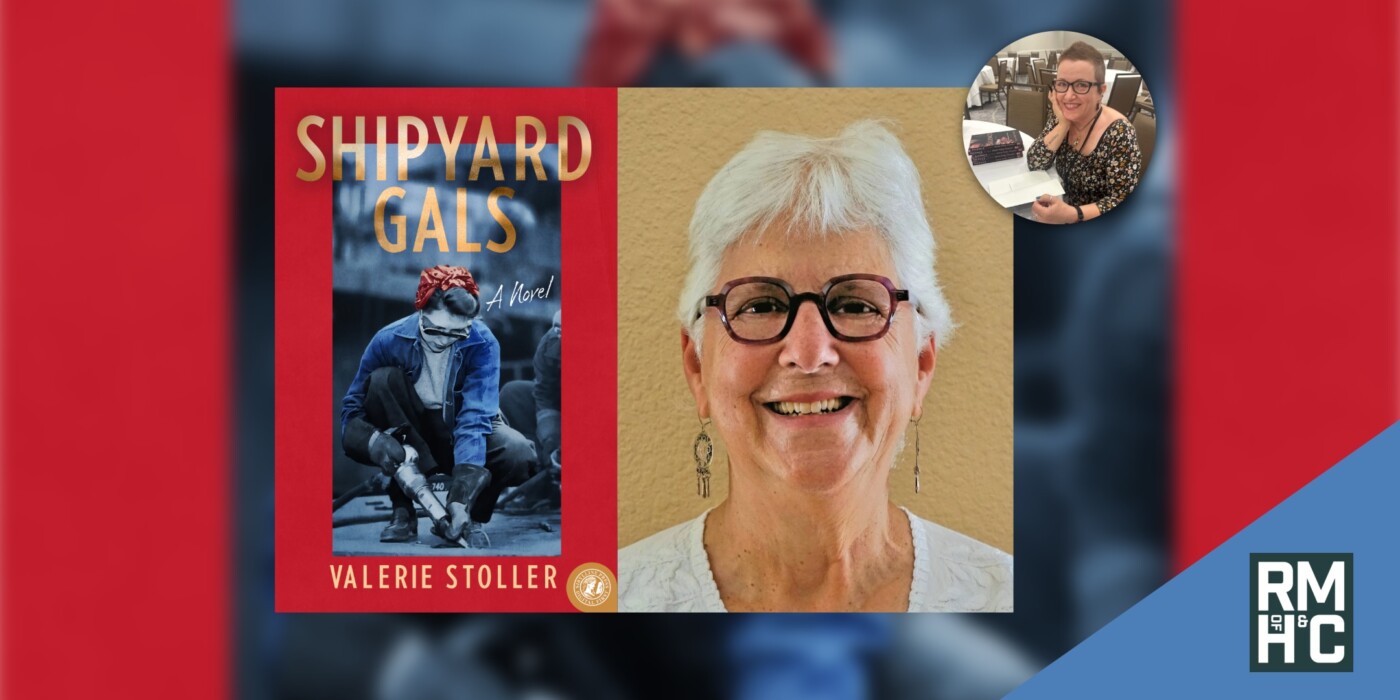In her riveting new novel titled “Shipyard Gals,” Valerie Stoller has written about World War II from an unusually eye-opening point of view.
The book is set in the Bay Area at the height of the war, in and around Richmond’s Kaiser Shipyard, and as it begins, the U.S. military is making constant demands to keep the war effort producing. With so many men fighting overseas, American women are joining the wartime efforts at home, and a new kind of struggle is emerging.
Stoller’s novel tells the story from the women’s point of view: Black, Latina and white alike, the women sign up to support the war and—more importantly—to keep the shipyard functioning. Yet they find themselves harassed, disrespected, poorly trained and woefully underpaid. It’s difficult, dangerous work, and that’s just part of the job. Some women don’t speak English, others are put into jobs they’ve never done before. And their superiors, for the most part, believe women have no place working there at all.
“Men weren’t used to working with women; at best, they just tolerated them,” says Stoller, who appears with novelist Julia Park Tracey in an Oct. 26 book launch at Rosie the Riveter World War II Home Front National Historical Park on the Richmond waterfront.
“Shipyard Gals” offers a new perspective on this country’s mid-century conflicts. At its center are a group of females including Elena, who has just arrived in Richmond, having fled violence in her native El Salvador; Rachel, a hardworking nurse in a workplace of frequent accidents; and Ruby Mae, a Black woman from the Deep South. Stoller lets them tell the story, which shows that 20th-century wartime was often as dangerous at home as it was in the battles being waged overseas.
The book is Stoller’s first, and it’s a page-turner. The author, who grew up in New Jersey and has lived in the Bay Area since 1973, paints a vivid picture of the time: the urgency of the West Coast wartime effort, historic events such as the disastrous 1944 U.S. Naval Base explosion in the East Bay’s Port Chicago, and the long fight for women’s status.
It’s a novel likely to surprise readers, even longtime Bay Area residents. Along with the big events of the novel, she includes scenes in familiar Richmond places such as Tapper’s Inn, one of the popular nightclubs that served military members throughout the war.
Stoller says the book took her on a journey of discovery, one that started in 2015 at the Rosie the Riveter center. Visits to Berkeley’s Bancroft Library also yielded a great deal of information about the era and the women who helped make history.
“I kind of absorbed those stories, and I wanted to show how women fit into them,” she says. “This was not glamorous work. They were doing what the men should have been doing, but so many of the men were gone. It was very dangerous work, and people were getting injured all the time.”
“Shipyard Gals” is dedicated to Betty Reid Soskin, a Boilermakers Union worker who retired and became a National Park Service Ranger. Stoller has gotten to know Soskin, now 104, and says, “She opened my eyes to the shipyard world with her wisdom and courage.”
Valerie Stoller speaks about “Shipyard Gals” at 2 p.m. Oct. 26 at Rosie the Riveter WWII Home Front National Historical Park, 1414 Harbour Way South, Suite 3000, Richmond. Visit nps.gov/planyourvisit/.
The post Richmond-set ‘Shipyard Gals’ details history-making efforts of WWII working women appeared first on Local News Matters.
